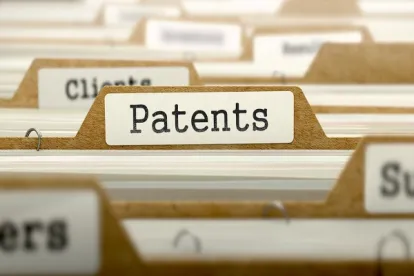Agencies’ draft revised policy statement is dropped in favor of relying on the discretion of courts to apply existing law to the particulars of each case.
Patent law and antitrust law both promote innovation, albeit in very different ways. Patent law creates incentives by granting inventors the right to exclude others from practicing the patented invention. Antitrust law protects the process of competition so that new inventions can enter and compete in the market. Nonetheless, there is long-standing tension between patent law, which enables in some circumstances the establishment of a monopoly, and antitrust law, which prohibits monopolization. The courts have long assured us that the two bodies of law are complementary. In the patent misuse area, the courts have held that antitrust applies when patentees who act “beyond the scope of the patent.” But determining precisely where patent protection ends and antitrust scrutiny begins remains a matter of considerable controversy. This tension arises today in the legal treatment of conduct involving Standard Essential Patents (SEPs).
Standard Essential Patents
In the U.S. and much of the developed world, technology standards, such as standardized interfaces that allow technologies from different manufacturers to interoperate, are arrived at through a process of voluntary consensus standard setting, sponsored by various Standard Development Organizations (SDOs). Members of an SDO propose standards that incorporate technology the proponent advocates as the best solution for the standard being considered. Rival technologies vying to become the standard are chosen by consensus.
Ordinarily, a meeting of industry competitors intended to reach a common consensus would raise serious antitrust concerns as a potential violation of Section 1 of the Sherman Act, which makes unlawful many types of agreements between competitors. However, antitrust law tolerates competitor cooperation in SDOs because the development of standards is pro-competitive and promotes innovation and technological progress. Nonetheless, some conduct in the context of an SDO still raises antitrust concerns. One example is a “patent hold-up.” In a patent hold-up, technology is chosen by an SDO for adoption as a standard, the industry tools up to implement the standard, and products incorporating the standard are brought to market. Only then, after vast sunk costs are expended and market acceptance has been achieved, does the owner of the standardized technology disclose that the technology is patented and demand exorbitant royalties from the industry participants.
To avoid hold-up, SDOs frequently require participants in the standards development process to disclose ex ante (i.e., before adoption of the standard) whether the technology being proposed is patented and, if so, to commit voluntarily to licensing the patents essential to implementing the standard under terms that are “fair, reasonable, and nondiscriminatory,” or “FRAND.” Patents that must be practiced as part of a standard are known as Standards Essential Patents (SEPs). An essential patent incorporated into a standard upon an ex ante commitment to FRAND licensing is known as a “FRAND encumbered SEP.” Notably, even FRAND encumbered SEP must be individually negotiated and licensed between the patentee and each implementer, because antitrust law prohibits concerted negotiations and buyer cartels.
Legal Issues and Recent Cases
Within this general framework for SEPs, legal issues bearing on the interplay between patent law and antitrust persist. The most evident is the interpretation of FRAND and a form of hold-up that exploits the bilateral nature of licensing negotiations. That is, a patentee may seek non-FRAND royalties for FRAND encumbered SEPs, as occurred, for example, in Broadcom Corp. v. Qualcomm Inc., 501 F.3d 297 (3d Cir. 2007). But equally as important as the royalty rate is the non-discrimination prong of FRAND, which was alleged to have been violated in Continental Automotive Systems v. Avanci, LLC (5th Cir., Feb. 28, 2022), discussed recently in this space. There, a group of SEP holders had bundled or pooled their patents for efficient licensing, but the licensing authority would only license the pool to automobile OEMs, not original parts makers. A component parts manufacturer sued, alleging that the licensing authority had violated the patentee’s FRAND commitment by refusing to offer it a license on FRAND terms. The Fifth Circuit held that the parts maker lacked standing to sue because it had not established an injury-in-fact. The automobile OEMs were licensed, which the court viewed as obviating the plaintiff’s need for a license for itself, thereby eliminating any compensable injury. Unfortunately, the court never reached whether the SEP holders’ FRAND commitments had been breached or whether the patentees’ behavior amounted to anticompetitive conduct cognizable under the antitrust laws.
At the heart of the patent law/antitrust intersection is the decision in eBay Inc. v. MercExchange, L.L.C., 547 U.S. 388 (2006), itemizing the four equitable factors necessary before an injunction against infringement may issue, including the need for proof of irreparable harm if the injunction does not issue and the inadequacy of money damages alone. In applying eBay, the Federal Circuit has observed that “[a] patentee subject to FRAND commitments may have difficulty establishing irreparable harm” when, inter alia, the patent holder has agreed to widely license.[i]
Federal Agency Policy Guidance
The ability to obtain an injunction against an infringer of a FRAND encumbered SEP is not unrelated to the problem of patent hold-up. The issues were explicitly linked in the “Policy Statement on Remedies for Standards-Essential Patents Subject to Voluntary F/RAND Commitments,” issued jointly by the Antitrust Division of the Department of Justice and the Patent and Trademark Office on January 8, 2013. There, the agencies recognized that an injunction by a federal court or exclusion order by the International Trade Commission could be inconsistent with the public interest where the order is incompatible with a FRAND licensing commitment to an SDO. “A decision maker could conclude that the holder of a F/RAND-encumbered, standards-essential patent had attempted to use an exclusion order to pressure an implementer of a standard to accept more onerous licensing terms than the patent holder would be entitled to receive consistent with the F/RAND commitment—… reclaim[ing] some of its enhanced market power over firms that relied on the assurance that F/RAND-encumbered patents included in the standard would be available on reasonable licensing terms under the SDO’s policy.”
In December 2019, the Trump administration’s Antitrust Division withdrew the 2013 Policy Statement, replacing it with a substitute statement bearing the same title. The revised statement retreated significantly from its predecessor’s recognition of the serious potential harm of hold-up, depicting hold-out (i.e., the refusal by an implementer to license the SEP) as a greater danger and proclaiming that “all remedies” continue to be available to patentees, whether or not subject to FRAND commitments. Then head of the Antitrust Division, Makan Delrahim, warned in a speech that FRAND commitments should not create a “compulsory licensing scheme.” The DOJ’s abandonment of the 2013 Policy Statement put licensees at a distinct legal disadvantage compared to SEP holders.
On December 6, 2021, the Antitrust Division, Patent and Trademark Office, and the National Institute for Standards and Technology (“NIST”) jointly issued a “Draft Policy Statement on Licensing Negotiations and Remedies for Standards-Essential Patents Subject to Voluntary F/RAND Commitments,” which restored much of the perspective of the 2013 statement. The draft statement recognized that opportunistic behavior can occur on both sides of the table and acknowledged the benefits of FRAND rules. It emphasized the importance of good faith negotiation between SEP owners and implementers. Importantly, it follows the Federal Circuit’s guidance recognizing the effect of an ex ante FRAND commitment on a patentee seeking an injunction or exclusion order on the grounds that an award of money damages would be inadequate.
Some commentators expressed the view that the draft policy statement went too far in curtailing the rights of patentees, while others said the draft statement did not go far enough. For example, the American Antitrust Institute recommended that the draft statement be strengthened to recognize explicitly that hold-up threatens much greater harm than hold-out, because hold-up necessarily requires a degree of deception by the SEP owner. The AAI would also broaden the application of eBay, arguing that FRAND commitments undermine not only the irreparable harm requirement for injunctive relief but also serves to show that the balance of equities does not favor the injunction (because a SEP owner who has been deceptive has “unclean hands”) and that the injunction is not in the public interest (because it incentivizes hold-up behavior).
A No-Policy Policy
In the end, however, the draft policy statement was not adopted. Instead, on June 8, 2022, the agencies jointly issued a statement entitled: “Withdrawal of 2019 Policy Statement on Remedies for Standards-Essential Patents Subject to Voluntary F/RAND Commitments.” The two-page statement abrogates the Trump-era statement, does not reinstate the 2013 statement, and states simply, “In exercising its law enforcement role, DOJ will review conduct by SEP holders or standards implementers on a case-by-case basis to determine if either party is engaging in practices that result in the anticompetitive use of market power or other abusive processes that harm competition.”
Echoing the short statement, Assistant Attorney General for Antitrust, Jonathan Kanter, said his teams will “carefully scrutinize opportunistic conduct by any market player that threatens to stifle competition in violation of the law, with a particular focus on abusive practices that disproportionately affect small and medium sized businesses or highly concentrated markets.” Kanter said he hopes that a case-by-case approach will encourage “good-faith efforts to reach FRAND licenses and create consistency for antitrust enforcement policy so that competition may flourish ...”
Under Secretary of Commerce for Standards and Technology and NIST Director Laurie E. Locascio said the withdrawal of the 2019 Statement will strengthen U.S. companies’ ability to influence international standards that are essential to U.S. technology leadership while enabling global technology markets. She said her agency received comments widely supporting “America’s industry-led, voluntary, consensus-based approach to standards development.”
Conclusion
While the agencies have put their full weight behind ex ante FRAND commitments and good faith bilateral negotiations, the interplay of patent, antitrust, and contract law in the analysis of bad behavior in the conduct of SEP licensing apparently defies a one-size-fits-all description. Courts will have to continue to analyze these interactions as disputes arise on a case-by-case basis without the benefit of any pre-announced informal guidance from the federal agencies.
To summarize, while the agencies have put their full weight behind ex ante FRAND commitments and good faith bilateral negotiations, the interplay of patent, antitrust, and contract law in the analysis of bad behavior in the conduct of SEP licensing apparently defies a one-size-fits-all description. Courts will have to continue to analyze these interactions as disputes arise on a case-by-case basis without the benefit of any pre-announced informal guidance from the federal agencies.
FOOTNOTES
[i] Apple Inc. v. Motorola, Inc., 757 F.3d 1286, 1332 (Fed. Cir. 2014), overruled on other grounds by
Williamson v. Citrix Online, LLC, 792 F.3d 1339 (Fed. Cir. 2015) (en banc) (explaining the circumstances in which injunctive relief for a standards-essential patent holder may be appropriate).




 />i
/>i
